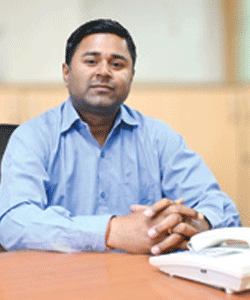
The Special Purpose Machines (SPM) market in India is expanding at a fast pace due to the growth in industrialization, technological improvements, and automation focus in manufacturing industries. The manufacturing Industry in India is shifting towards change due to the implementation of Industry 4.0 principles, which focus on automation, data sharing, and smart technologies. This shift is driving the need for SPMs since manufacturers are looking to improve production performance, lower expenses, and sustain margins. This is particularly the case since labor costs have increased and there is a need to be precise in the processes of manufacturing. The “Make in India” campaign, along with the introduction of policies that are more manufacturing-friendly, have also helped the growth of the SPM market. These measures are designed to support the development of the country’s manufacturing industry and attract more FDI, which will in turn stimulate demand for more sophisticated equipment.
The automotive industry is one of the major sectors in the Indian economy, which is one of the primary factors stimulating the growth of the SPM market. The industry is seeking to automate various processes and improve quality in the production line, which has led to the need to incorporate special purpose machines to perform functions like assembly, welding and inspection. Likewise, the electronics and consumer goods sectors are implementing SPMs to create high levels of standardized quality in production. SPMs are being developed with the help of global technology providers with Indian manufacturers partnering with them to integrate robotics, artificial intelligence and IoT into SPMs.
In the current issue, we introduce you to the top companies in this sector. In this issue, Industry Outlook has identified the select few companies that have done particularly well in this industry with a high level of dedication. We have found that these companies have gone the extra mile in proving their commitment to meet the customer needs in an integrated manner.
We welcome your feedbacks and suggestion that you may have concerning this special issue.
We use cookies to ensure you get the best experience on our website. Read more...